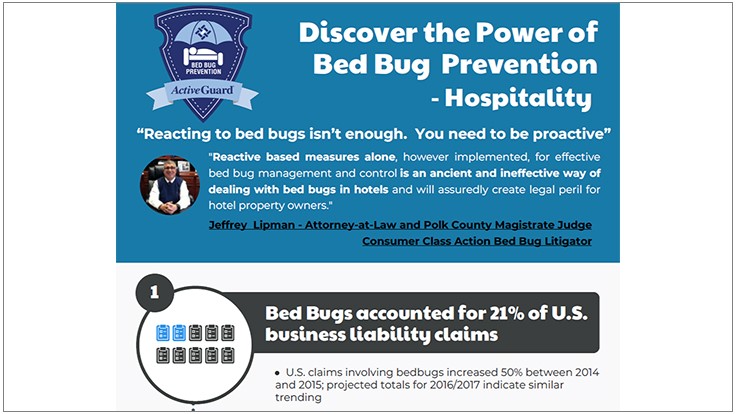The Role Of Bug Exterminators In Environmental Sustainability
The Role Of Bug Exterminators In Environmental Sustainability
Blog Article
you can check here By-Nguyen Dickey
You may think that pest exterminators are only interested in getting rid of pests, yet their duty surpasses that. They play a vital component in environmental sustainability.
By utilizing incorporated pest administration methods, they not just get rid of bugs yet also guard biodiversity.
Additionally, they utilize lasting parasite extermination techniques to mitigate ecological threats.
So, next time you doubt the value of bug exterminators, remember their payment to a greener and much healthier world.
The Value of Integrated Insect Management
You must comprehend the relevance of integrated bug management in preserving a lasting atmosphere.
Integrated Parasite Monitoring (IPM) is a technique that focuses on stopping and regulating bugs while decreasing the use of dangerous chemicals. By implementing IPM approaches, you can successfully handle pest populations without causing harm to the atmosphere.
One crucial aspect of IPM is making use of organic controls, such as predators and bloodsuckers, to naturally control pest populations. This reduces the demand for chemical pesticides, which can have harmful impacts on wild animals and ecological communities.
In addition, IPM promotes using social and physical controls, such as crop turning and exemption methods, to avoid parasites from becoming an issue in the first place.
Shielding Biodiversity With Bug Control
We can protect biodiversity with reliable parasite control approaches that focus on the preservation of natural communities. By using responsible parasite control techniques, we can shield and keep the fragile equilibrium of types within our environment. Here are three ways in which insect control contributes to protecting biodiversity:
- ** Preserving native vegetation and animals ** - By targeting intrusive species that threaten indigenous plants and animals, bug control helps ensure the survival of indigenous varieties and preserves the natural variety of environments.
- ** Avoiding the spread of diseases ** - Managing parasites such as insects and ticks reduces the threat of diseases infecting wildlife populations, protecting biodiversity and preventing possible episodes.
- ** Preserving threatened types ** - By taking care of bugs that prey on or compete with endangered types, pest control initiatives can boost the opportunities of survival and promote the recovery of prone populaces.
With liable parasite control strategies, we can proactively contribute to the preservation of biodiversity and the sustainability of our natural world.
Mitigating Environmental Dangers With Sustainable Parasite Extermination Techniques
By using lasting parasite elimination methods, you can properly alleviate environmental risks while making sure the safety and security and well-being of both humans and the all-natural ecosystem. Traditional pest control approaches typically include the use of unsafe chemicals that can have destructive effects on the atmosphere.
Nevertheless, lasting insect elimination techniques focus on reducing these dangers by making use of environmentally friendly options. As an example, integrated parasite administration (IPM) methods focus on the use of safe and biodegradable items, in addition to natural predators to regulate pest populations. This strategy not just minimizes the negative influence on the environment however additionally helps to maintain the delicate equilibrium of the community.
In addition, sustainable bug extermination techniques promote the conservation of biodiversity by targeting details pests without damaging valuable organisms. By embracing these techniques, you can contribute to a more lasting and eco-friendly approach to pest control.
Conclusion
You are the pest exterminator, the guardian of nature's harmony. With integrated take a look at the site here , you balance the delicate ecological community, making sure the survival of diverse varieties.
Via lasting methods, you alleviate environmental risks, keeping the fragile balance intact.
Like a symphony conductor, you manage the rhythm and circulation, shielding the biodiversity that dances in best harmony.
With every action you take, you produce a globe where nature thrives, where parasites pull back, and where sustainability preponderates.
